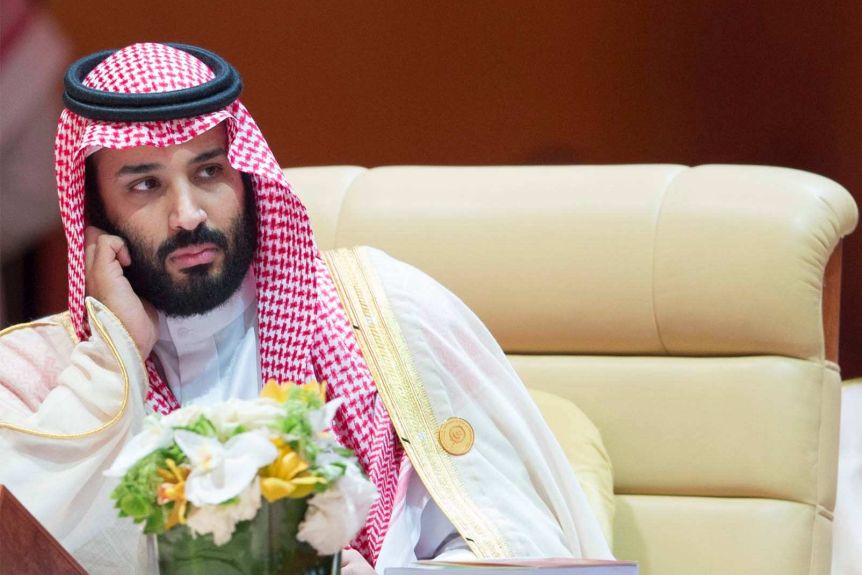BY: Ruhollah Qasemian

PEJOURNAL – With Biden coming and changing US foreign policy in the Middle East, we seem to be witnessing serious challenges and concerns for the throne of the young Crown Prince of Saudi Arabia ( Bin Salman ), the least likely of which is the formulation of US Middle East policy in Washington and the White House not in Riyadh and the court of King Salman.
After the outcome of the US presidential election and Biden’s decisive victory in the field of US foreign policy in the Middle East, two issues are eye-popping. The first is the issue of JCPOA and Iran and the second is the issue of challenges facing Saudi Arabia.
On the first issue, we all know that Biden, who was part of the JCPOA agreement during the Obama administration, has repeatedly said in the election campaign that the United States will return to JCPOA and lift unilateral sanctions. He still believes that the best way to deal with Iran’s nuclear program is through the JCPOA channel and the P5 + 1 agreement. Although the sanctions imposed on Iran during the Trump era are widespread and their lifting is not easy for the United States to return to the JCPOA, the Biden administration seems determined to return to the JCPOA and reach a nuclear deal with Iran, and European partners in this regard, He is also looking for America.
But on the second issue, Biden and other Democrats have repeatedly stressed that Saudi Arabia’s hegemonic, ambitious and belligerent policies must stop in the region. Biden used the term “catastrophic war” about Yemen and even spoke of punishing Saudi Arabia, which seems to have seen challenges in relations between the two countries and changes in regional developments. Now we have to see what problems will be faced by the young Saudi Crown Prince Mohammed Bin Salman during Biden’s presidency, who committed many crimes inside Saudi Arabia, Yemen, Syria, etc. during the Trump era with widespread support. An overview of developments in the region reveals six major challenges in Saudi-US relations during the Biden period:
- The first issue is the human rights case of the young Crown Prince Mohammad Bin Salman. Recovering and opening the case of the murder of Jamal Khashoggi, whom the Democrats, unlike Trump, had become the crown prince. Undoubtedly, opening this case, along with the crimes of the Saudis in Yemen, could pose many challenges to the young Bin Salman, the least of which is the transfer of more concessions to the United States. Another point is that the hand of the young crown prince will be more closed to continue this path and he cannot continue his crimes and incitement to war like the Trump era without permission and coordination.
- Selling oil and getting OPEC in order. Under Biden, if sanctions on Iran and Venezuela are lifted in OPEC, the return of two powerful oil partners to world markets could challenge the Saudi oil market. At present, Saudi Arabia is facing a budget deficit due to the problems that Saudi Arabia has in terms of reducing oil prices, and the return of Iran and Venezuela to the nightmarish oil markets will be a far greater challenge for Bin Salman.
- The third issue is Biden’s return to the IAEA nuclear deal. This incident has upset the Saudi royal family. The return of the United States to JCPOA means the lifting of sanctions and the rise of Iran. In fact, the sale of oil and the resurgence of Iran’s oil industry, the development of Iran’s imports and exports, the return of Iran’s 80 million market Finally, the strengthening of Iran’s regional influence has upset all Saudi leaders.
- It seems that Saudi Arabia’s regional immunity will end with Biden’s presidency. According to Biden’s approach to Yemen, Saudi actions and crimes in Yemen will stop. National unity has spoken and called the Yemeni war catastrophic. In general, he wants US priorities in the Middle East to be set in Washington, not Riyadh. This could put an end to Bin Salman’s ambitious immunities in the region.
- In general, the legacy of the Democrats in the Middle East is to negotiate, manage regional conflicts, and move toward accepting all countries in the process of accountability, and in this regard, they will certainly seek to strengthen the power of new regional actors. The ruler of the United Arab Emirates, Mohammed bin Zayed, may be a more reliable partner for Biden than Mohammed bin Salman. Ben Zayed also distanced himself from Saudi Arabia in the Yemeni war, and Biden is also interested in less direct involvement in the Middle East. Accordingly, it is fair to say that Saudi Arabia will not be popular with Washington during the Biden period.
- During the Trump era, King Salman and his son Mohammad Bin Salman were able to create influence and legitimacy for themselves by widespread domestic repression, eliminating rivals and opponents at home and abroad. Domestic and foreign, and the continuation of his war-mongering and ambitions in the Middle East, which undoubtedly contradicts Biden’s view and the foreign policy of the Democrats, and in this regard, Bin Salman will face challenges.
With Biden coming and changing US foreign policy in the Middle East, we seem to be witnessing serious challenges and concerns for the throne of the young Crown Prince of Saudi Arabia, the least likely of which is the formulation of US Middle East policy in Washington and the White House not in Riyadh and the court of King Salman.